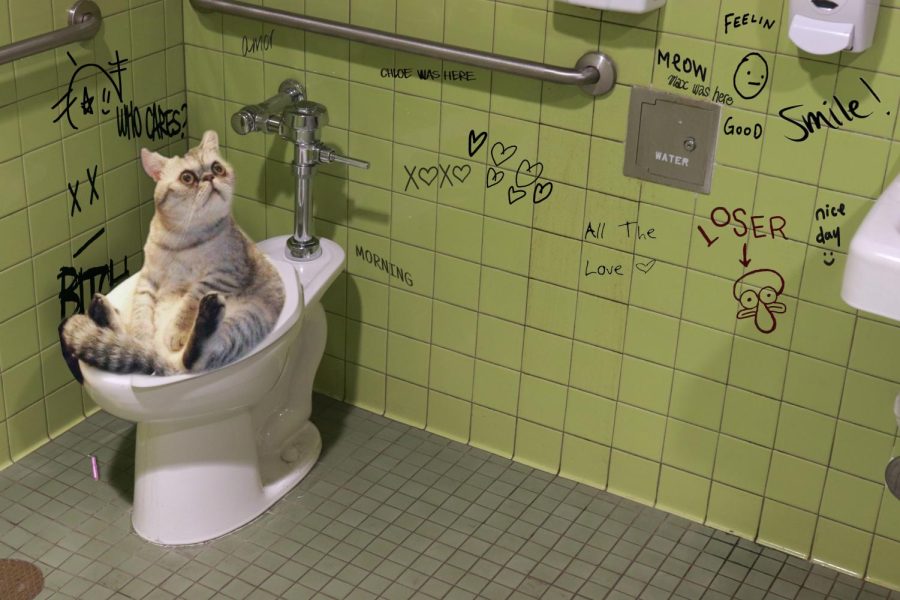Reasons You Shouldn't Flush Cat Poop Down Your Toilet - Preserve Your Plumbing System
Reasons You Shouldn't Flush Cat Poop Down Your Toilet - Preserve Your Plumbing System
Blog Article
The article author is making several great annotation about Can You Flush Cat Poop Down The Toilet? in general in this great article followed below.

Intro
As pet cat owners, it's necessary to bear in mind exactly how we get rid of our feline good friends' waste. While it may seem hassle-free to purge pet cat poop down the bathroom, this practice can have detrimental consequences for both the atmosphere and human health.
Alternatives to Flushing
The good news is, there are safer and much more responsible methods to deal with pet cat poop. Consider the following alternatives:
1. Scoop and Dispose in Trash
The most usual technique of getting rid of pet cat poop is to scoop it right into a biodegradable bag and toss it in the trash. Make sure to utilize a committed litter inside story and deal with the waste quickly.
2. Usage Biodegradable Litter
Opt for eco-friendly cat litter made from materials such as corn or wheat. These clutters are eco-friendly and can be securely disposed of in the trash.
3. Bury in the Yard
If you have a yard, consider burying pet cat waste in a marked location away from vegetable yards and water sources. Make certain to dig deep adequate to prevent contamination of groundwater.
4. Mount a Pet Waste Disposal System
Purchase a family pet waste disposal system specifically made for feline waste. These systems make use of enzymes to break down the waste, minimizing odor and environmental effect.
Wellness Risks
Along with environmental worries, purging pet cat waste can additionally position health dangers to people. Feline feces might include Toxoplasma gondii, a bloodsucker that can create toxoplasmosis-- a possibly serious disease, particularly for expecting ladies and individuals with weakened body immune systems.
Environmental Impact
Purging feline poop presents harmful virus and parasites right into the water supply, posing a significant threat to aquatic ecological communities. These contaminants can adversely impact aquatic life and compromise water quality.
Final thought
Responsible pet possession prolongs past giving food and sanctuary-- it likewise includes correct waste monitoring. By refraining from purging cat poop down the commode and going with different disposal methods, we can minimize our environmental footprint and shield human health.
Why You Should Never Flush Cat Poop Down the Toilet
A rose by any other name might smell as sweet, but not all poop is created equal. Toilets, and our sewage systems, are designed for human excrement, not animal waste. It might seem like it couldn’t hurt to toss cat feces into the loo, but it’s not a good idea to flush cat poop in the toilet.
First and foremost, assuming your cat uses a litter box, any waste is going to have litter on it. And even the smallest amount of litter can wreak havoc on plumbing.
Over time, small amounts build up, filling up your septic system. Most litter sold today is clumping; it is made from a type of clay that hardens when it gets wet. Ever tried to scrape old clumps from the bottom of a litter box? You know just how cement-hard it can get!
Now imagine just a small clump of that stuck in your pipes. A simple de-clogger like Drano isn’t going to cut it. And that means it’s going to cost you big time to fix it.
Parasitic Contamination
Believe it or not, your healthy kitty may be harboring a nasty parasite. Only cats excrete Toxoplasma in their feces. Yet it rarely causes serious health issues in the cats that are infected. Most people will be fine too if infected. Only pregnant women and people with compromised immune systems are at risk. (If you’ve ever heard how women who are expecting are excused from litter cleaning duty, Toxoplasma is why.)
But other animals may have a problem if infected with the parasite. And human water treatment systems aren’t designed to handle it. As a result, the systems don’t remove the parasite before discharging wastewater into local waterways. Fish, shellfish, and other marine life — otters in particular — are susceptible to toxoplasma. If exposed, most will end up with brain damage and many will die.
Depending on the species of fish, they may end up on someone’s fish hook and, ultimately on someone’s dinner plate. If that someone has a chronic illness, they’re at risk.
Skip the Toilet Training
We know there are folks out there who like to toilet train their cats. And we give them props, it takes a lot of work. But thanks to the toxoplasma, it’s not a good idea.

I'm just very focused on How to Dispose of Cat Poop and Litter Without Plastic Bags and I really hope you appreciated the piece. Sharing is good. Who knows, you may very well be doing someone a favor. Thanks for your time. Kindly check up our site back soon.
Request Free Estimate Report this page